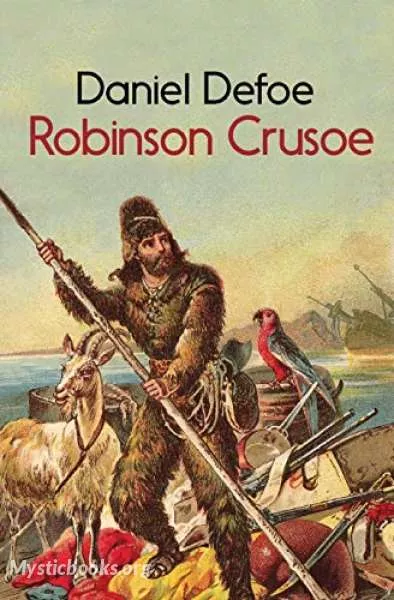
Robinson Crusoe
by Daniel Defoe
'Robinson Crusoe' Summary
Crusoe (the family name corrupted from the German name "Kreutznaer") set sail from Kingston upon Hull on a sea voyage in August 1651, against the wishes of his parents, who wanted him to pursue a career in law. After a tumultuous journey where his ship is wrecked in a storm, his desire for the sea remains so strong that he sets out to sea again. This journey, too, ends in disaster, as the ship is taken over by Salé pirates (the Salé Rovers) and Crusoe is enslaved by a Moor. Two years later, he escapes in a boat with a boy named Xury; a captain of a Portuguese ship off the west coast of Africa rescues him. The ship is en route to Brazil. Crusoe sells Xury to the captain. With the captain's help, Crusoe procures a plantation.
Years later, Crusoe joins an expedition to bring slaves from Africa, but he is shipwrecked in a storm about forty miles out to sea on an island near the Venezuelan coast (which he calls the Island of Despair) near the mouth of the Orinoco river on 30 September 1659. He observes the latitude as 9 degrees and 22 minutes north. He sees penguins and seals on his island. As for his arrival there, only he and three animals, the captain's dog and two cats, survive the shipwreck. Overcoming his despair, he fetches arms, tools and other supplies from the ship before it breaks apart and sinks. He builds a fenced-in habitat near a cave which he excavates. By making marks in a wooden cross, he creates a calendar. By using tools salvaged from the ship, and some which he makes himself, he hunts, grows barley and rice, dries grapes to make raisins, learns to make pottery and raises goats. He also adopts a small parrot. He reads the Bible and becomes religious, thanking God for his fate in which nothing is missing but human society.
More years pass and Crusoe discovers native cannibals, who occasionally visit the island to kill and eat prisoners. At first he plans to kill them for committing an abomination but later realizes he has no right to do so, as the cannibals do not knowingly commit a crime. He dreams of obtaining one or two servants by freeing some prisoners; when a prisoner escapes, Crusoe helps him, naming his new companion "Friday" after the day of the week he appeared. Crusoe then teaches him English and converts him to Christianity.
After more natives arrive to partake in a cannibal feast, Crusoe and Friday kill most of the natives and save two prisoners. One is Friday's father and the other is a Spaniard, who informs Crusoe about other Spaniards shipwrecked on the mainland. A plan is devised wherein the Spaniard would return to the mainland with Friday's father and bring back the others, build a ship, and sail to a Spanish port.
Before the Spaniards return, an English ship appears; mutineers have commandeered the vessel and intend to maroon their captain on the island. Crusoe and the ship's captain strike a deal in which Crusoe helps the captain and the loyal sailors retake the ship. With their ringleader executed by the captain, the mutineers take up Crusoe's offer to be marooned on the island rather than being returned to England as prisoners to be hanged. Before embarking for England, Crusoe shows the mutineers how he survived on the island and states that there will be more men coming.
Crusoe leaves the island 19 December 1686 and arrives in England on 11 June 1687. He learns that his family believed him dead; as a result, he was left nothing in his father's will. Crusoe departs for Lisbon to reclaim the profits of his estate in Brazil, which has granted him much wealth. In conclusion, he transports his wealth overland to England from Portugal to avoid traveling by sea. Friday accompanies him and, en route, they endure one last adventure together as they fight off famished wolves while crossing the Pyrenees.
Book Details
Language
EnglishOriginal Language
EnglishPublished In
1719Genre/Category
Tags/Keywords
Authors
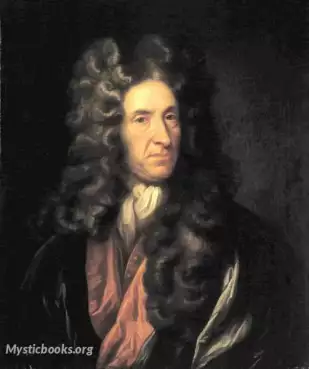
Daniel Defoe
England
Daniel Defoe is known for his lively and vigorous style, full of articulate lucid details and illustrations. The thing that makes the writing of Daniel Defoe stand out more so than others is that he w...
Books by Daniel DefoeDownload eBooks
Listen/Download Audiobook
Related books
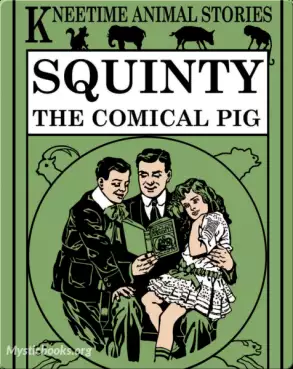
Squinty the Comical Pig by Richard Barnum
This comical children's tale about the funny adventures of a funny pig written by an unknown author. The publisher has hired authors to write children...
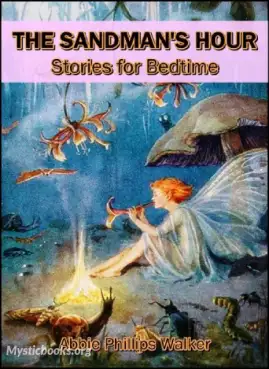
The Sandman's Hour by Abbie Phillips Walker
Short bedtime stories for young children. Some were cute and others a little strange, but overall they were fairly interesting and enjoyable.
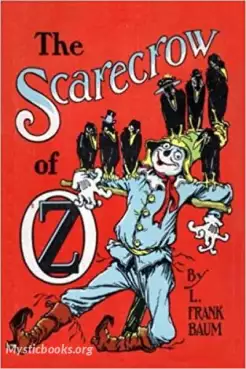
The Scarecrow of Oz by L. Frank Baum
Published in 1915, The Scarecrow of Oz is the ninth book in the Oz book series and focuses on the adventures of Cap’n Bill, Trot, and the Scarecrow, w...

Leading Events in the History of the Church: Part 1 - Christian Antiquity by The Sisters of Notre Dame
This book is the first volume in a series of Catholic Church history books written for children. It covers the time period from after Our Lord's death...

Songs Ysame by Annie Fellows Johnston
This collection of poems, "Songs Ysame," was a collaborative effort between sisters Albion Fellows Bacon and Annie Fellows Johnston. Known for their d...

Harper's Young People, Vol. 01, Issue 22, March 30, 1880 by Various
This volume, the 22nd issue of *Harper's Young People*, was published on March 30th, 1880, by Harper & Brothers, a renowned publishing house known for...

Kari the Elephant by Dhan Gopal Mukerji
"Kari, the elephant, was five months old when he was given to me to take care of. I was nine years old and I could reach his back if I stood on tiptoe...

Peterkin Papers by Lucretia P. Hale
The Peterkins were a lovable but comically inept family that possess ingenuity, logic, resourcefulness, and energy--but not common sense. The general...

John Dough and the Cherub by L. Frank Baum
John Dough and the Cherub is a whimsical adventure story about a sentient gingerbread man named John Dough who comes to life after a baker's wife acci...
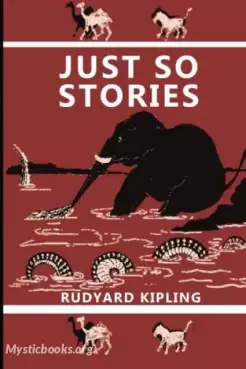
Just So Stories by Rudyard Kipling
Written originally for his own children, Rudyard Kipling's Just So Stories have continued to delight generations of youngsters since they were first p...
Reviews for Robinson Crusoe
No reviews posted or approved, yet...